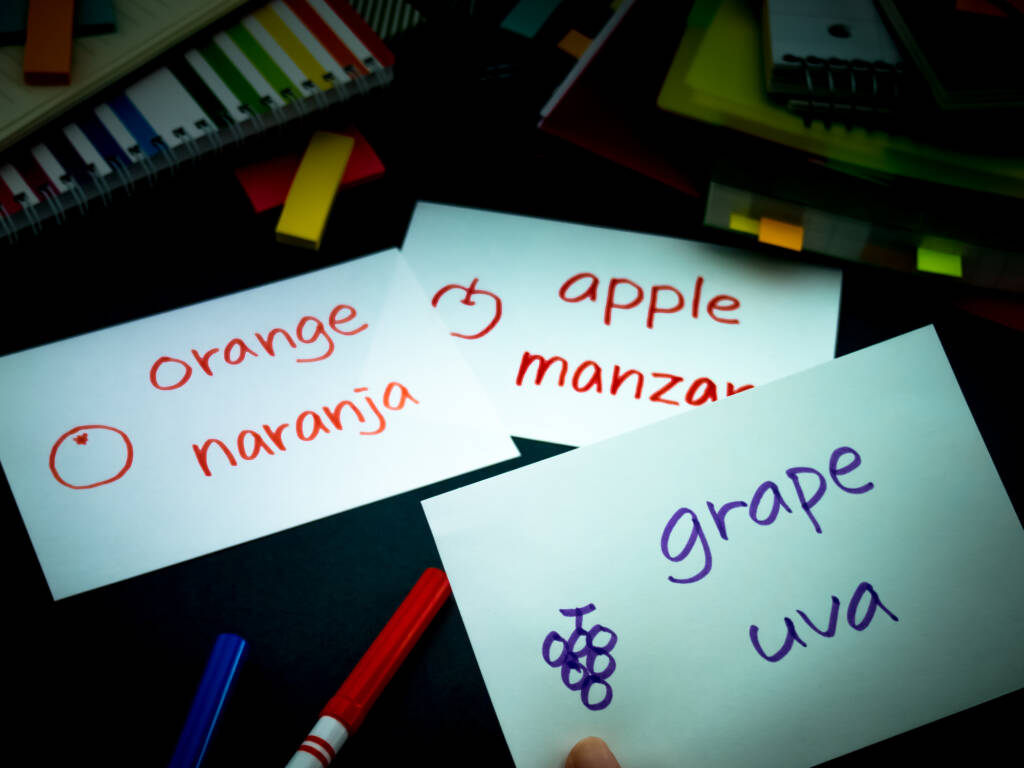
Elementary Spanish Level 4

Elementary Spanish is a fun and interactive way for students to learn about the Spanish culture and language. They will learn through engaging stories that help them understand the language in context. In the beginning, they will focus on listening and speaking skills, and later on, they will also learn to read and write in Spanish.
Elementary Spanish courses provide different types of learning materials and opportunities to practice speaking, reading, writing, and listening to the language. They also include reviews of previous lessons to reinforce learning. Each course is designed to connect students with the authentic culture of a specific Spanish-speaking region through art, celebrations, and traditions.
Please view the Elementary Parents Guide for Grades 3-5 with guidance on helping your student transition to online learning and thrive at VLACS.
Major Topics and Concepts
Module One
- Countries in South America
- Culture of Argentina
- Formal and informal greetings
- Asking and answering questions about greetings
- Family member words
- Describe people using adjectives
- Compare family members based on their appearance
- Asking and answering questions about people’s appearances
- Words and expressions related to soccer
- Third person plural
- Famous soccer player Leo Messi
- Asking and answering questions using quién
- Wild animals of South America
- Iguazu Falls
- Signs about wild animals
- Habitats of wild animals
- Asking and answering questions using dónde
Module Two
- Seasons and months of the year
- Vocabulary related to weather
- Seasons are opposite in Patagonia and North America
- Asking and answering questions about opposites
- Asking and answering questions about weather
- Summer clothing
- Winter clothing
- Conjugations for the verbs poner and tener
- Labeling adjectives with correct number and gender
- Asking and answering questions about winter clothing
- Signs seen at stores
- Winter activities
- Prepositions related to winter activities
- Asking and answering questions about winter activities
- Telling time
- Writing the date
- Yesterday, today and tomorrow
- Asking and answering questions about time
Module Three
- Wild animals of South America
- Tierra del Fuego
- Nature and surroundings of Tierra del Fuego
- Penguins
- Future tense
- Ask and answer questions about helping the penguins
- Words related to being ill
- Body parts of a penguin
- Veterinarian vocabulary
- Ask and answer questions about body parts and needs
- Numbers 1-1000
- Counting by 100s
- Multiplying by 100s
- Foods that penguins eat
- Asking and answering ¿Cuántos ________ hay para los pingüinos?
- Writing a letter
- Vocabulary related to writing a letter
- Giving advice
- Asking and answering questions about writing letters
Module Four
- Gaucho culture
- Family words
- Rhyming and poetry
- Argentine Pampas
- Past tense
- South American animals
- Vocabulary related to fairy tales
- Key points of a fairy tale
- Asking and answering questions about fairy tales
- Vocabulary related to the solar system
- Planets in the solar system
- Constellations
- Asking and answering questions about planets and their distance from the sun
- Native South American cultures and their art
- Imperfect verbs
- Native North and South American cultures
- Ask and answer questions about Native South American cultures
Course Materials
All levels of Spanish require independent reading skills. We recommend students begin Spanish sometime during grades 2 or 3, depending on their reading level. Those who are not yet reading independently can take the course, provided an adult is available to read material to the student.
To achieve success, students are expected to submit work in each course weekly. Students can learn at their own pace; however, “any pace” still means that students must make progress in the course every week. To measure learning, students complete self-checks, practice lessons, multiple choice questions, projects, discussion-based assessments, and discussions. Students and families are expected to maintain regular contact with teachers because, when teachers, students, and parents work together, students are successful.
Required Materials – Please view the list of materials before registering.
Competencies
Adjectives, Date, Time, Weather and Spanish Vocabulary for Clothing and Winter Activities
I can identify the months of the year and the associated season in Spanish. I can identify weather expressions in Spanish. I can identify winter clothing in Spanish. I can identify winter activities in Spanish. I can interpret adjectives with the correct gender and number in Spanish. I can interpret time and dates in Spanish.
Greetings, Third Person Plural, Comparisons and Spanish Vocabulary for Animals and Soccer
I can interpret formal greetings using titles in Spanish. I can compare family members using adjectives in Spanish. I can Identify words associated with soccer in Spanish. I can compare subject pronouns in the third person plural in Spanish. I can identify wild animals of South America in Spanish.
Numbers in the Hundreds, Writing Letters and Spanish Vocabulary for Food and Body Parts
I can identify vocabulary associated with the surroundings of Tierra del Fuego in Spanish. I can interpret body parts in Spanish. I can identify numbers 100-1000 in Spanish. I can identify foods in Spanish. I can describe the items needed when writing a letter in Spanish.
Rhyming and Spanish Vocabulary for Fairy Tales and Planets
I can describe aspects of the gaucho culture in Spanish. I can interpret rhyming words in Spanish. I can identify words associated with fairy tales in Spanish. I can identify planets in Spanish. I can describe the Native South American Cultures and their art.

